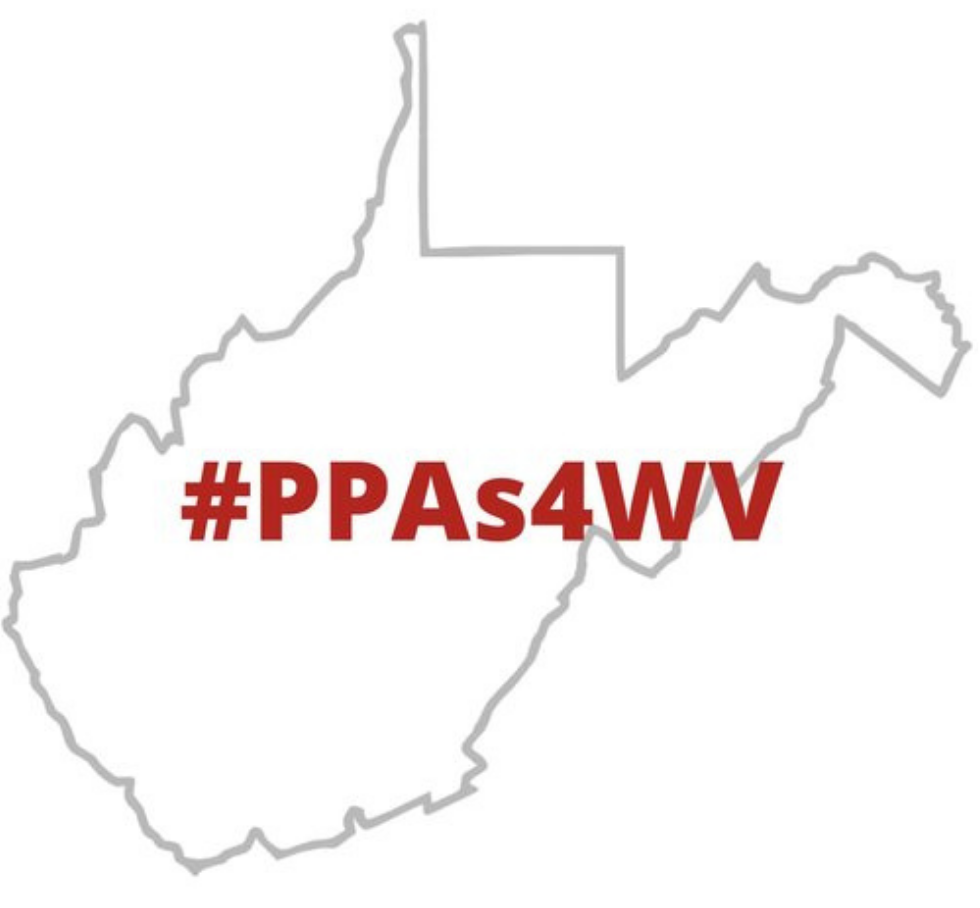Two members of the Mid-Ohio Valley Climate Action (a coalition member) publicly urged lawmakers to support legalizing on-site Power Purchase Agreements (PPAs) in West Virginia this session.
Jean Ambrose wrote what may be one of our favorite Letters to the Editor about why West Virginia legislators need to legalize on-site Power Purchase Agreements! From her Feb. 13 letter in The Parkersburg News-Sentinel:
…Most people can’t afford to get solar panels because, in our state, the individual has to front the entire purchase price to put up the panels. In the states surrounding West Virginia, third-party power purchase agreements are legal, which allow a business or a nonprofit to front the installation costs for you. My daughter has this in Connecticut.
On Feb. 19, Eric Engle advocated in an Op-Ed in The Charleston Gazette-Mail for legalizing on-site PPAs because the popular financing method would help bring renewable energy to West Virginia while creating jobs, saving consumers money, and improving public health.
(PPAs) also help foster the kind of energy independence that both major parties and people along the entire political/ideological spectrum can get behind.
Read Eric’s Op-Ed (may be behind a paywall).
Please consider leaving a comment supporting the letter on the newspaper’s website if you're so inclined.







